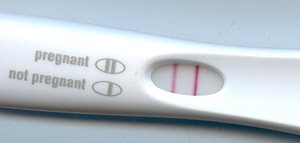10 Questions to Ask at Your Pre-Pregnancy Appointment

There are many factors that affect your chances of conception and your health and family medical history are only some of them. If you are entertaining thoughts of becoming pregnant in the near future, discuss the following with your doctor:
Age
According to the saying, age is just a number. But when you are trying to conceive, it can be much more than that. A woman's fertility gradually declines with age, especially after 35, according to the American Society for Reproductive Medicine. Also, if you do become pregnant, older moms face a higher risk of ectopic pregnancy (when the fertilized egg implants somewhere other than the uterus), gestational diabetes, placenta previa (when the placenta blocks the cervix) and stillbirth, according to the Mayo Clinic.
Birth Control
If you've been taking medication to postpone menstruation or prevent pregnancy, it's common for your body to require a few months to get back on track before you can conceive. Discuss with your doctor any medications you are on or have stopped taking, and how long you should expect before your cycle normalizes.
Diet
If you expect to get pregnant in the next few months, your diet should reflect one of a host ready to carry a baby. That includes cutting out alcohol, tobacco and drug use, as well as unhealthy or binge eating. Ask what, if any, pre-natal vitamins you should start taking.
Environment
Consider your (and your partner's) work and home environment when talking with your doctor. You may be putting yourself in situations you didn't realize could negatively affect conception, pregnancy and your baby's health. For example, many substances common in some workplaces can cause reproductive problems in men, according to the Centers for Disease Control and Prevention. Radiation, cigarettes, heat and many chemicals are just some examples.
Exercise/Weight
Being over or underweight can affect your chances for conception. Ask your doctor what a good weight for you would be and how you can achieve and maintain that goal. Maintaining a healthy weight can not only better your chances for conception but help you develop habits to stay active during pregnancy. Talk to your doctor about exercise routines that are right for you, and what physical activities you should avoid if you become pregnant.
Lifestyle
You should also prepare mentally and emotionally for the journey of pregnancy. If there are any lifestyle behaviors that could jeopardize your goal, you may want to bring them up with your doctor.
Ovulation
Understanding your ovulation is essential when you are trying to get pregnant. For the average person, ovulation occurs at about day 14. Since sperm can live in a woman's body for three to five days, according to the Mayo Clinic, you'll want to have sex about every other day around the time of your ovulation. Talk to your doctor about using an ovulation calendar to track your best times for conception.
Sex
Rumor has it that some sexual positions are more likely to end in pregnancy than others. While there's no proven data and could be an old wives tale, you could still ask your doctor about how frequency and position affects sperm count and probability of conception.
Your Partner
You don't have to be reminded that it takes two to tango. Your partner's sexual, medical and family history all play a part in your journey to parenthood. His lifestyle behaviors—if not directly, then indirectly—will affect you and your hopeful pregnancy.
This article has been written for The Pregnancy Centre by:
About the author April Robinson
April is a stay-at-home mom and freelance writer who shares her experiences with pregnancy and parenting.
Demac Resources Pty Ltd. www.thepregnancycentre.com.au . 2013 - 2020.